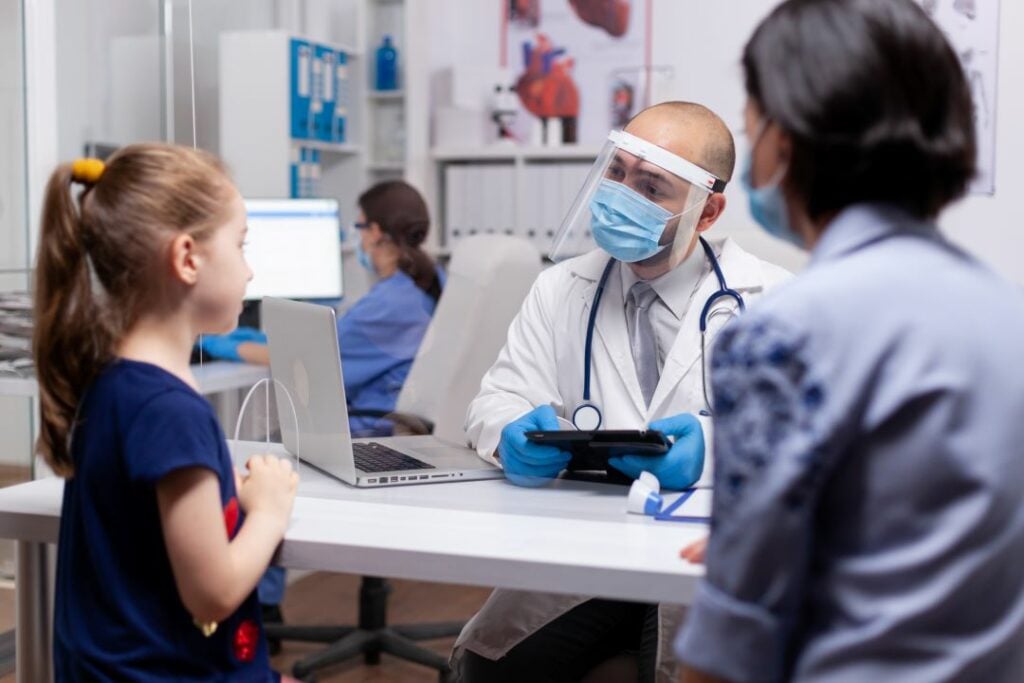There are more than 2 million doctors in the United States in 2022, in various specialties and with varying degrees of competency. Most doctors have forgotten more about the human body, and disease, than most lay people will ever know in their lifetimes; and when it comes to specialties, like cardiology or immunology, the level of patient knowledge could be even lower. As a result, patients can’t always tell how competent their doctors are, or if they are getting good advice about their health.
Adding to the confusion is the fact that many doctors hold biases against certain types of patients, which can greatly impair their ability to give proper care.
Best case scenario, patients are left dissatisfied with the quality of care which they are receiving; worst case, patients are left with undiagnosed, misdiagnosed, and poorly-treated conditions – some of which are life-threatening.
As patients, we trust our physicians to give us the care we need; but trust is often not enough, we also need to be our own health advocates.
We need to learn how to take control of our care, and spot possible medical negligence.
When Things Go Wrong
Things can go wrong for a variety of reasons. Ultimately, doctors are human beings and along with the tendency towards bias, which all humans have, there is also the capacity to make mistakes. Unfortunately, the mistakes doctors make can sometimes have serious, and even life-threatening, consequences.
If you believe that your doctor has made a mistake concerning your care, you have several options.
- If you have a good relationship with your doctor, you should first consider approaching him or her with your concerns. It could be that the doctor made a mistake, or it could be that your doctor made specific decisions about your care based on information in your chart that you might not be aware of.
- If you don’t have a good relationship with your doctor, you might want to consider getting a second opinion from a different doctor – preferably one from a different office than your original doctor. A new doctor could be a fresh set of eyes that sees something your old doctor missed.
- If you believe your doctor has made a serious, and even dangerous, mistake regarding your care, you could also take legal action by talking to a personal injury attorney who specializes in medical malpractice.
However, your best option is to take steps to avoid mistakes, such as diagnosis errors and medication errors, before they happen. That’s why taking control of your medical care is so important.
Taking Control of Your Care
Doctors spend approximately eight years in college and an additional three or four years in internships and residency programs to hone their skills. The average patient does not have that level of training or knowledge, but that doesn’t mean they can’t get the information they need to make informed decisions.
There has been a lot of discussion about the so-called “Google University” — medical information discovered through online searches – especially as it relates to the recent measles outbreaks and the anti-vaxxer movement.
While the internet is full of questionable medical information, there is also a wealth of reliable, peer-reviewed resources that can help you in your quest to be an advocate for your own care. Many of these sites are government sponsored, like the National Institutes of Health and the Centers for Disease Control and Prevention, which have .gov extensions; others are sponsored by reputable medical facilities and organizations like the Mayo Clinic and the Johns Hopkins Medicine, which have .org extensions. You can even find information on alternative and holistic treatment methods from the National Center for Complementary and Integrative Health.
You can use these sites to look up information regarding your condition, and to discuss this information with your doctor. You can also use these sites to determine if you need to get a second opinion, or if you need to get a referral to a specialist. They can also tell you what treatments, if any, you could safely try in addition to your doctor’s recommended treatment plan, and of new treatments that your doctor might not be aware of. Or you can develop a website that fits all of your criteria and relevant recommendations.
These sites should not be used as a substitute for medical care, and you should not try any alternative treatment without first consulting your doctor, but they can be a valuable tool for education and empowerment.
Taking control of your medical care is not about doing your doctor’s job; it’s about helping your doctor do his job better or, finding a doctor that is a better match for you. mHealth apps development progressed a lot in this direction in the last decade and your IoT devices collect more info than you may expect. Your doctor only sees you for a few minutes each visit, whereas you live with your symptoms every day. Often, that means you are the only person who really knows what’s going on with your health, which means that you are often the best source of information for your doctor.
Using reputable and factual resources to educate yourself about your health, and especially about any medical conditions that you might have, enables you to be a partner in your medical care, which can lead to a better quality of care and fewer mistakes.

